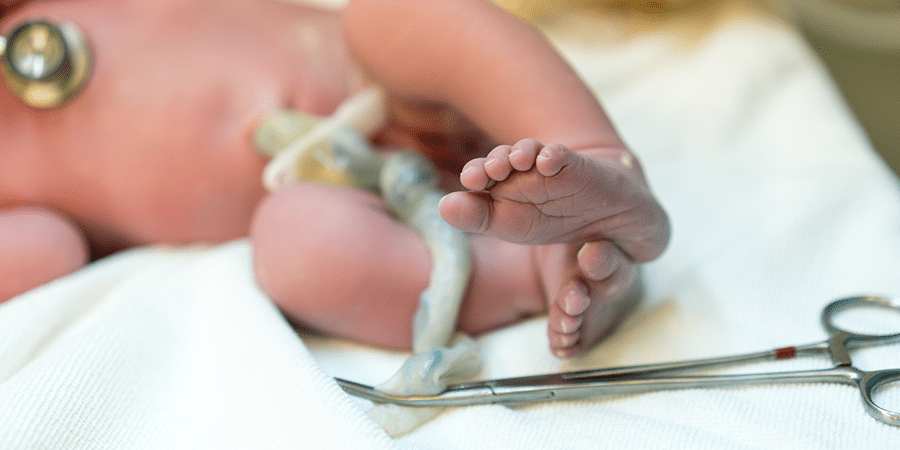

This research represents the largest-ever analysis of data from children with CP enrolled in clinical trials testing cord blood as a treatment. The results confirm that cord blood is safe and can improve gross motor function, especially in a subset of children identified as ‘best responders’.
Umbilical cord blood is collected from the placenta after a baby is born. Cord blood contains various stem and immune cells that are being tested for the treatment of brain injuries, such as CP. Cord blood is the most researched cell therapy for people with CP, with clinical trials spanning 20 years.
Over these 20 years we have learnt from individual clinical trials that cord blood is safe for people with CP and may lead to improvements in gross motor skills and other outcomes, compared to rehabilitation alone. However, despite being included as a “green light intervention” in the CP Interventions Traffic Light Research Paper (Novak 2020), cord blood is not currently approved for the treatment of CP by any regulatory agency in the world and is not readily available as a treatment option.
One of the reasons cord blood is not yet approved for CP may be due to variability in the clinical trials completed so far. This variability includes the way the studies were designed including how, and how much cord blood was given, the participants included (for example the ages and type of CP of those receiving treatment), and even the way potential benefits were measured. This has led to doubt as to whether cord blood really works as a treatment for CP.
To better understand cord blood as a treatment for CP a team of 16 researchers from Australia, the USA, the Republic of Korea and Iran conducted a research study called an Individual Participant Data Meta-Analysis, or IPDMA.
An IPDMA is a type of research method where researchers combine detailed data from each person treated across different clinical trials to get a clearer and more accurate understanding of the results.
By using this research method, the team was able to bring together data from multiple clinical trials to ask questions such as:
This study included data from 498 children with CP from 11 clinical trials. Overall, the results showed that cord blood treatment is safe and improved gross motor skills in children with CP in combination with rehabilitation, compared to those who received rehabilitation alone. In addition, this study revealed that the biggest improvements for children with CP were seen 6-12 months after cord blood treatment, and higher doses of cord blood were better.
Dr Megan Finch-Edmondson, the lead researcher on the study said, “Given the amount of data that was analysed in this IPDMA study, we can be much more confident in the effect of cord blood for CP, and the size of the treatment benefit that might be possible.”
In terms of who might benefit from cord blood treatment, the results showed that younger children (up to age 5) with milder CP (Gross Motor Function Classification System levels 1-3) had the best outcomes. These are referred to as “best responders” to cord blood treatment.
The results of this study highlight that cord blood treatment is safe for children with CP, and when combined with rehabilitation, provides benefits for improving gross motor skills in some children with CP. Future efforts will support cord blood becoming an approved and available treatment for CP. More research may also help us understand whether cord blood treatment can lead to other benefits, such as improvements in fine motor skills or cognition.
You can read the full scientific paper here.